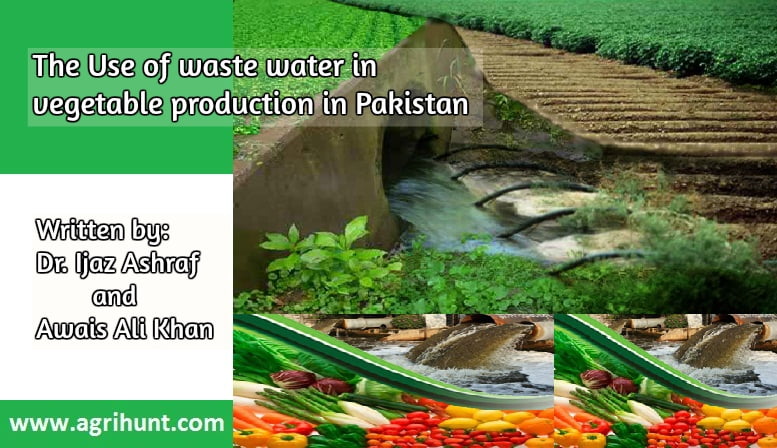(Written By: Dr. Ijaz Ashraf and Awais Ali Khan)
Pakistan is an agriculture base country where majority of the population is directly and indirectly associated with it. Vegetables are the important part of agriculture. WHO recommend a minimum of 200g vegetables consumption per day for a healthy person, to fulfill the daily demand framers usually prefer to grow vegetables in peri-urban areas because of easy market access. Like other developing countries wastewater is used for irrigation purpose in many peri-urban regions in Pakistan where growers have small agriculture lands and water effluents are easily available generally free of cost. Because of unavailability of other cheap and reliable source of irrigation water. Wastewater is considered beneficial to plant growth as a result effluents are extensively used for irrigation of crops.
According to latest estimates about 85% used water in towns ultimately adopts the form of discarded water. However, industrial waste water get mixed with urban sewage may contain unnecessary quantities of heavy metals like zinc, manganese, nickel etc.
If these metals present in soil in excessive amount go in the food chain as a result becoming poisonous humans and plants. In recent study conducted by a scientist it has been found that there is no criteria to exam the composition of waste water which is alarming. With increase in demand farmers are trying to get more yield to earn more profit which lead them to use sewage or industrial waste water in vegetable production which is cost effective and easily available all the time. Soil and water samples were also collected from the sites and tested from laboratory to check the contamination in the soil and water being used in agriculture production. Results were alarming all the water sample were unfit for irrigation because heavy metals and toxic matters were found in these samples.
In the result of contaminated water application soil is becoming un fertile and harder which is not fit for good production.
Waste water should be regularly monitored to make sure the quality of water fit for production vegetables. The major reasons for wastewater use in vegetable production were unavailability of canal water, high cost of tube well water. Government should focus on this emerging issue and recommendations of export should be taken seriously for best public interest as we can’t ignore the useful aspect of waste water the best way of waste water use should be taught to the farmer for healthier use ,factories should bound to eliminate treated waste water, like our neighbor country there is a need of priority government should formulate some farmer friendly policies like free electricity for tube well water, cheap agricultural inputs and easy access to market for better economy.
About Authors:
Dr. Ijaz Ashraf is Assistant Professor in Institute of Agri. Extension and Rural Development in UAF.
Mr. Awais Ali Khan is PhD scholar, Social activist and Strategic & marketing consultant Piplian seed Cooperation.
Note:
- For publishing your articles at Agrihunt:
Email us at: [email protected]
Contact No: 0303-4309053
Publication letter would be awarded to our writers(After 10 publications at least.)










